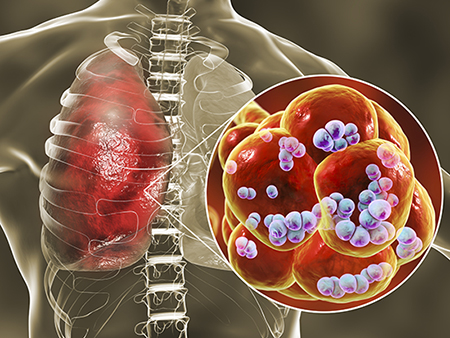World Pneumonia Day
World Pneumonia Day is an omnipresent observance and not a communal day off.
Pneumonia is a form of acute respiratory infection impinging the lungs, making breathing agonizing and restraining oxygen absorption. Pneumonia is the heftiest slayer of children under age 5 worldwide. Roughly, one in five global child deceases result from pneumonia annually. By the same token, viz. an avertible and treatable ailment via vaccines, antibiotic regiment, and ameliorated sanitation. The United Nations (UN) primarily celebrated the day on November 12, 2009.
Inaugurated in 2009, World Pneumonia Day is marked every year on November 12th to aggravate cognizance about pneumonia, the world’s leading killer of children under the age of five; endorse interventions to insulate against, forestall and heal pneumonia; and engender action to combat pneumonia.
The Global Coalition against Child Pneumonia proffers leadership for World Pneumonia Day.
Pneumonia is one of the most solvable issues in global health and hitherto a child passes away from the infection every 20 seconds. Together we can ensure the battle against pneumonia is won.
On 12th November, boosting the visibility of pneumonia will allow us to educate the public and spread scientifically-proven data on this disease. Worldwide, 700,000 children die from pneumonia annually more than from any other infectious disease that affects children younger than 5 years.
The pneumococcal vaccine is included in the national immunization program in most countries of the world; therefore, the pneumococcal vaccine is the potential to be added to the country's general vaccination program.
Pasteur Institute of Iran, which has more than a hundred years of experience in controlling infectious diseases, has prevented pneumonia and developed its vaccine as one of its health priorities.
The launch of the production line for tetanus and pneumococcal vaccines in the Pasteur Institute of Iran with an area of 20000 square meters is the largest vaccine production line in the Middle East. It provides the needs of the country as well as the possibility of exporting to other countries. By launching this production line with coating technology, it will be possible to produce other vaccines such as meningitis and multivalent vaccines.
The different aspects of conjugated P.C.V technology transfer, including quality, clinical trial, production and corresponding infrastructure are following according to the signed contract between Pasteur institute of Iran and Finlay institute of Cuba. This vaccine has successfully passed clinical trial studies in preschool children in Cuba. It was selected based on the most common strains of the world, and according to the existing documentation and results, it has performed very well.



